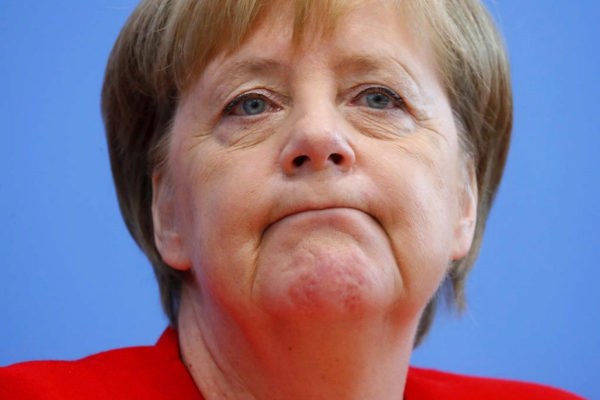When things in the economy get difficult, the first thing they creak is the ship's frames, that is, the institutions. We all remember the employer's boss, Gerardo Díaz Ferrán, asking to "suspend capitalism" that until then had made him so rich in the midst of the 2008 crisis. Germany, with its faith in institutional stability, is no exception . The bad growth data has opened the spigot so that the government begins to demand a policy of greater public spending that breaks the barrier set by the famous Schuldenbremse (debt brake) that the country introduced in its Constitution in 2009.
Social Democrats and Greens have long been asking that Angela Merkel's government stop interpreting this rule under the principle of schwarze null ("zero black", that is, a balanced budget with positive bias). Yesterday, however, was also requested by Joachim Lang , the executive director of the powerful German Industry Federation (BDI). In an article in Handelsblatt , he demanded that a fund of 15,000 to 20,000 million be created to relaunch the economy and advocated finding ways for the State to spend more, either by investing or lowering taxes, taking advantage of the fact that the cost of financing is negative. "There are months with cloudy skies ahead, which threaten to become years if politicians do not take strong measures," says Lang.
The golden rule of the German budget allows several exceptions. One is that it is still allowed to have a federal deficit of 0.35% of GDP (Brussels turns a blind eye to 0.5%). This figure can be expanded if the economy weakens. But, most importantly, in case of "natural disasters or exceptional emergencies", the rule can be suspended. A simple majority in the Bundestag is enough and not a quorum of 2/3 which is what is required to modify the Constitution.
The objective of the German norm is that each generation pays its expenses and does not consume the taxes that its children will pay in the form of debt. With this they have managed to get their public debt at 60% of GDP, a figure that seems that Spain, for example, will not reach in several decades.
Merkel does not seem willing, at the moment, to do anything from the budget. The current crisis caused by the Donald Trump trade wars is a perfect storm for the German economy, a vehicle fueled by its exports. What is under stress is the German model, where more than 50% of its GDP comes from what they sell outside. But first, the trade surplus that depends more on Lang's affiliates than Merkel's prosecutor will be reduced.
It will be that same exposure abroad that should provide reliable signals of where the German economy should change. This requires, in addition to good ideas such as the commitment to Industry 4.0 of the "captains of industry" Teutons, a high flexibility of internal markets to be able to adopt the new forms that the economy will demand. A greater fiscal deficit, as we have repeatedly verified in Spain, does not guarantee more common sense.
johnmuller.es@gmail.com
According to the criteria of The Trust Project
Know more- GDP
- Spain
- Industry
- Donald Trump
- Angela Merkel
- Germany
Grandstand Keys to a bad situation
The Gang Walk Vacant Spain
A FUNDS Adventures of a candidate

